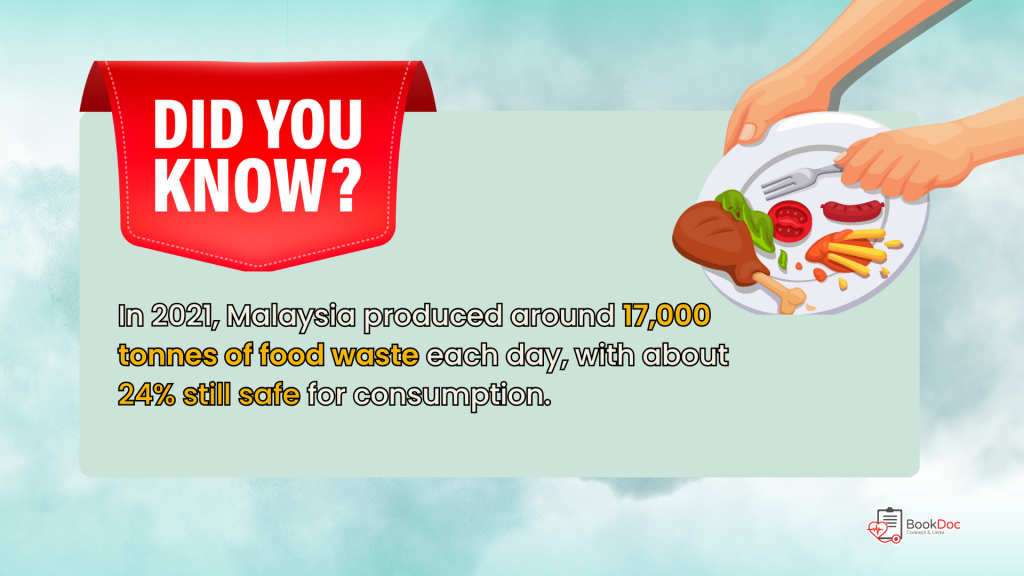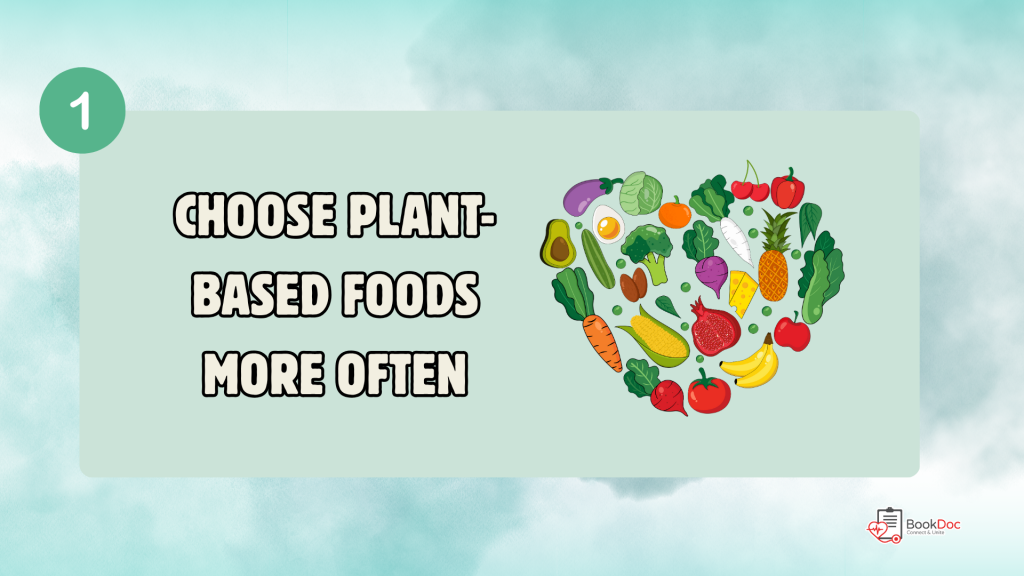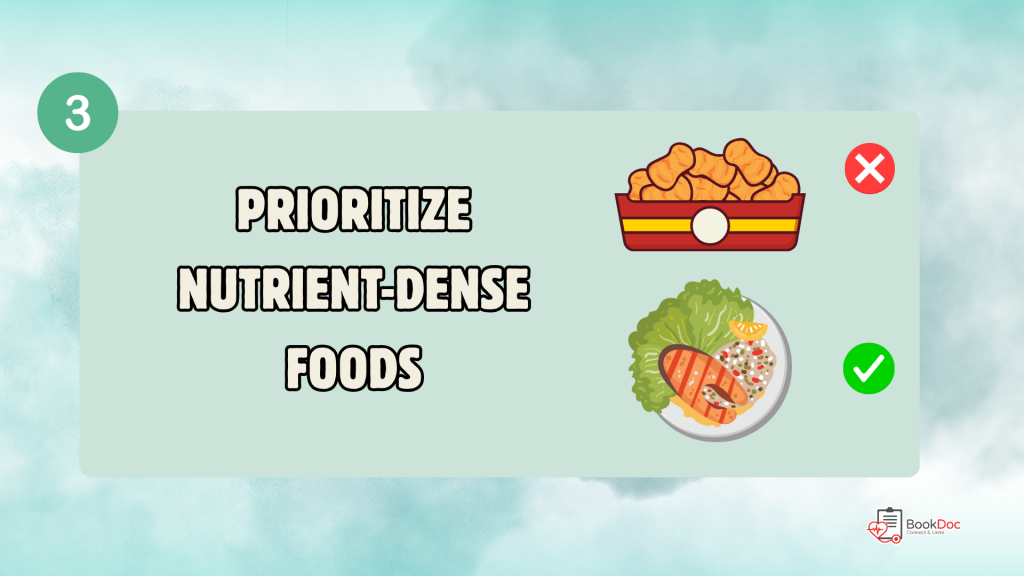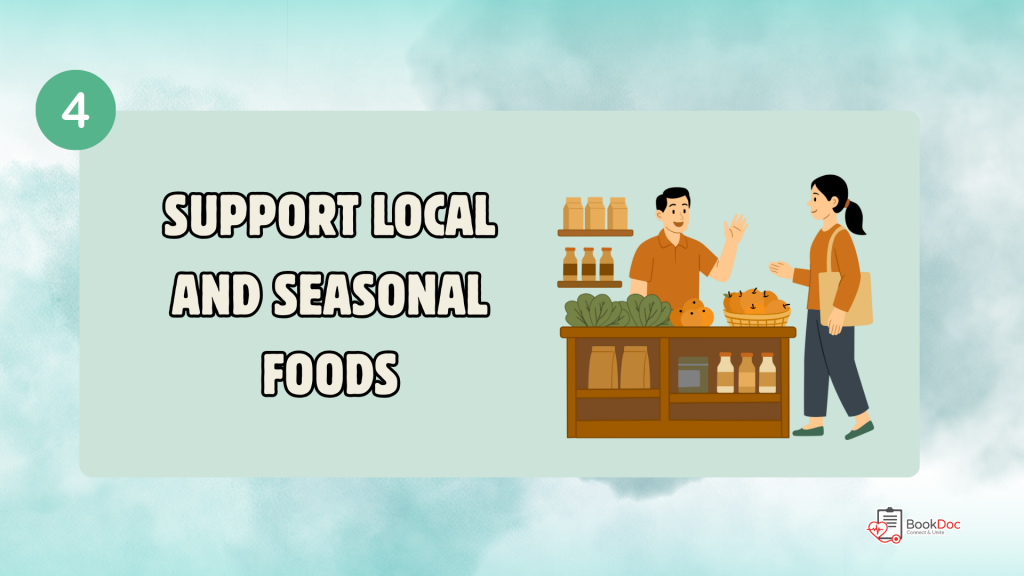
This stark contrast highlights a pressing issue: food waste. Our daily food choices can play a pivotal role in addressing this challenge. By adopting sustainable eating habits, we not only improve our health but also contribute to a more equitable and environmentally friendly food system. Here are what you can do to save the planet:

Incorporating more plant-based foods into your diet can have significant benefits for both your health and the planet. Start by replacing one meat-based meal per week with a plant-based alternative like lentils, tofu or chickpeas which are also high in protein. Over time, you can increase the frequency of these meals. Furthermore, plant-based foods are rich in essential nutrients like fiber, vitamins, and minerals, which can reduce the risk of chronic diseases such as heart disease and diabetes(2).

Once you start eating more plant-based meals, it’s equally important to use every ingredient to its fullest. Food waste contributes to greenhouse gas emissions and wastes the valuable resources used to produce food.
The visual below highlights a few simple steps you can take to start reducing food waste at home.


After learning to minimize waste, the next step is choosing foods that nourish both our bodies and the planet. Nutrient-dense foods provide essential vitamins and minerals without excess calories, helping support long-term health and reduce the strain on food systems . Example of nutrient-dense foods such as:
- Legumes: Beans, lentils, and peas are excellent sources of protein, iron, and fiber.
- Eggs: Rich in high-quality protein and essential vitamins and minerals.
- Vegetables: Leafy greens such as spinach and kale are rich in vitamins A, C, and K, as well as folate and iron.
To put this into practice, aim to fill half your plate with vegetables and fruits, one-quarter with lean proteins, and one-quarter with whole grains as shown in the visual below.


Once you’ve built a balanced, mindful plate, take the next step by choosing where your food comes from. Buying local and seasonal produce supports nearby farmers, boosts the local economy, and reduces transportation-related emissions.
Benefits of Supporting Local and Seasonal Foods:
- Freshness and Flavor: Local produce is often fresher and more flavorful.
- Reduced Carbon Footprint: Shorter transportation distances mean lower greenhouse gas emissions (3).
- Economic Support: Purchasing from local farmers supports community economies.

Finally, sustainability isn’t just about what you eat — it’s also about how you eat. Mindful eating encourages you to slow down, savor your meals, and appreciate the effort behind every bite. Avoid distractions like phones or television, and pay attention to your body’s hunger and fullness cues. When you eat with awareness, you naturally reduce waste, make better choices, and find more joy in every meal.
Conclusion
Sustainable eating means making mindful choices about what we eat, how we use food, and where it comes from. By eating more plant-based meals, reducing waste, supporting local produce, and practicing mindful eating, we care for both our health and the planet. Every small action counts—start simple, stay consistent, and let each meal move you toward a greener future.
Reference
- Zainal Abidin, N. N., Zaki, M. A., & Shafie, F. A. (2022). Knowledge, attitude and practices of food waste management among foodservice operators in Petaling Jaya Utara (PJU) 9 and 10, Selangor. JOURNAL OF SUSTAINABILITY SCIENCE AND MANAGEMENT, 17(12), 89–104. https://doi.org/10.46754/jssm.2022.12.009.
- Wang, Y., Liu, B., Han, H., & others. (2023). Associations between plant-based dietary patterns and risks of type 2 diabetes, cardiovascular disease, cancer, and mortality: A systematic review and meta-analysis. Nutrition Journal, 22(1), 46. https://doi.org/10.1186/s12937-023-00877-2.
- Jung, D.-E., Yang, S.-B., & Yang, S.-R. (2024). The Effects of Local Food on Carbon Emissions: The Case of the Republic of Korea. Sustainability, 16(9), 3614. https://doi.org/10.3390/su16093614.













